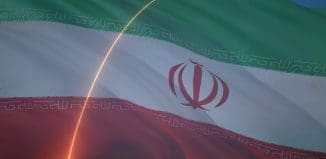Experts: Israeli Foreign Policy May Harm National Security
This post is also available in:  עברית (Hebrew)
עברית (Hebrew)
Israel’s foreign policy isn’t a central element of its defense strategy, lacking long-term planning. The main concern: Talks with Iran won’t prevent the Islamic republic from advancing towards nuclear weapons.
 There’s a severe, systemic strategic failure involving Israel’s foreign policy and the fact that it was never a central element in shaping the country’s defense strategies. This failure has been an ongoing one, continuing across entire periods and common to all major parties. This according to Knesset member Dr. Ronen Hofman of the Yesh Atid party, in his opening address at the “Updating Israel’s National Security Doctrine” conference. The conference was held at the Institute for Policy and Strategy (IPS) at the Herzliya Interdisciplinary Center.
There’s a severe, systemic strategic failure involving Israel’s foreign policy and the fact that it was never a central element in shaping the country’s defense strategies. This failure has been an ongoing one, continuing across entire periods and common to all major parties. This according to Knesset member Dr. Ronen Hofman of the Yesh Atid party, in his opening address at the “Updating Israel’s National Security Doctrine” conference. The conference was held at the Institute for Policy and Strategy (IPS) at the Herzliya Interdisciplinary Center.
During the conference Iranian expert Dr. Emily Landau expressed her concerns over the chances for a good agreement between Iran and the west – in addition to the fact that the agreement probably won’t keep Iran from developing nuclear weapons.
Knesset member Dr. Ronen Hofman, formerly a researcher and lecturer at the IDC and a member of the Knesset’s Foreign Affairs and Defense Committee, stated that while Israeli defense doctrines attempt to foresee processes and long terms threats in order to prepare the defense establishment for war, the same cannot be said about the country’s foreign policy. In addition, foreign policy has never been a central element in shaping Israel’s national security doctrine. Israel’s advocacy and foreign affairs are aimed at responding rather than initiating, more like fire fighting than planned decision making. Knesset member Hofman brought up several examples: “The Justice Minister is responsible for the peace talks with the Palestinians while the Foreign Ministry is kept out of the loop. As for the BDS campaign calling for Israel’s isolation and delegitimization, the Strategic Affairs Minister orchestrates the efforts against it rather than the Foreign Ministry, despite the fact that Foreign Ministry representatives are the ones facing the anti-Israeli organizations abroad.” Knesset member Hofman believes that cabinet ministers and their conflicting egos are mostly responsible for this state of affairs, resulting in the Foreign Ministry having little to no effect on Israel’s national security doctrine.
As for Iran, Dr. Emily Landau of the Institute for National Security Studies said that there’s almost no chance for reaching a good agreement between Iran and the west in the current discussions between the powers. It’s unclear whether the western allies intend to seriously discern the military dimensions of Iran’s nuclearization, and they didn’t even bring it up as a condition for signing an agreement. On the Arak facility, Dr. Landau said that in this facility Iran could turn to plutonium-based nuclearization. Iran did announce some changes that will result in a reduction in the amounts of plutonium, but the country will still keep the plutonium option open. “The formula: Advanced centrifuges plus plutonium enriched to low levels mean Iran is on the threshold of developing nuclear weapons.”
iHLS – Israel Homeland Security
Israel’s current state: “As long as the negotiations continue Israel will remain in a “wait and see” condition. If Iran does gain nuclear capabilities quickly Israel will have to examine its options for deterring Iran. Should we maintain nuclear secrecy? Give it up? Make nuclear threats of our own? Israel’s uncompromising attitude on the nuclear issue has been made clear to neighboring countries, which view Israel as a nuclear state. Israel has to convince the world that Iran must be stopped before it has the ability to decide whether to develop nuclear weapons or not.” The most probable scenario, according to Dr. Landau, is the current talks between Iran and the west ending inconclusively. “I don’t think Iran will stop its nuclear program, even if we aren’t likely to see a nuclear Iran in the foreseeable future.”
Orientalist Prof. Shaul Mishal from the Herzliya IDC said that there’s something wrong about Israel’s national security doctrine and the way we perceive the other side. “Did we know about the two intifadahs? No. Did we know what was going to happen to Mubarak? Did we know what was going to happen in Syria? The answers is always negative.”
Prof. Mishal on the Arab spring: “A hundred years ago an Englishman and a Frenchman, Sikes and Picot, arbitrarily drew up borders for the Arab states. That’s all gone. Two years from now we will celebrate the going away party for the Sikes-Picot Agreement. This is what’s happening today; the Arab spring is the twilight of an old system. Today we’re in an intermediary period, the formation of something new, meaning Israel’s security doctrine is no longer relevant. Long-range planning means nothing now, not before we know who is the enemy and who is our friend.” The researcher believes that Israel should change its perceptions and show more respect for the other side. “We have to realize that there are many educated members of Hamas. Rouhani’s government in Iran includes more doctors than Obama’s government. In Iran they study everything, translate foreign literature, study philosophy.”
“The solution for us in Israel: Stop thinking categorically. Not everything is black and white, right or wrong. We have to learn to differentiate between different layers inside Hamas, for examples, between Palestinian good guys and bad guys, realize that borders between Arab states are no longer relevant. We have to realize that the established Israeli formula viewing security doctrine as comprised of the three elements of alert, advanced notice and deterrence – is probably no longer relevant, as the other side is much more complex.”





























